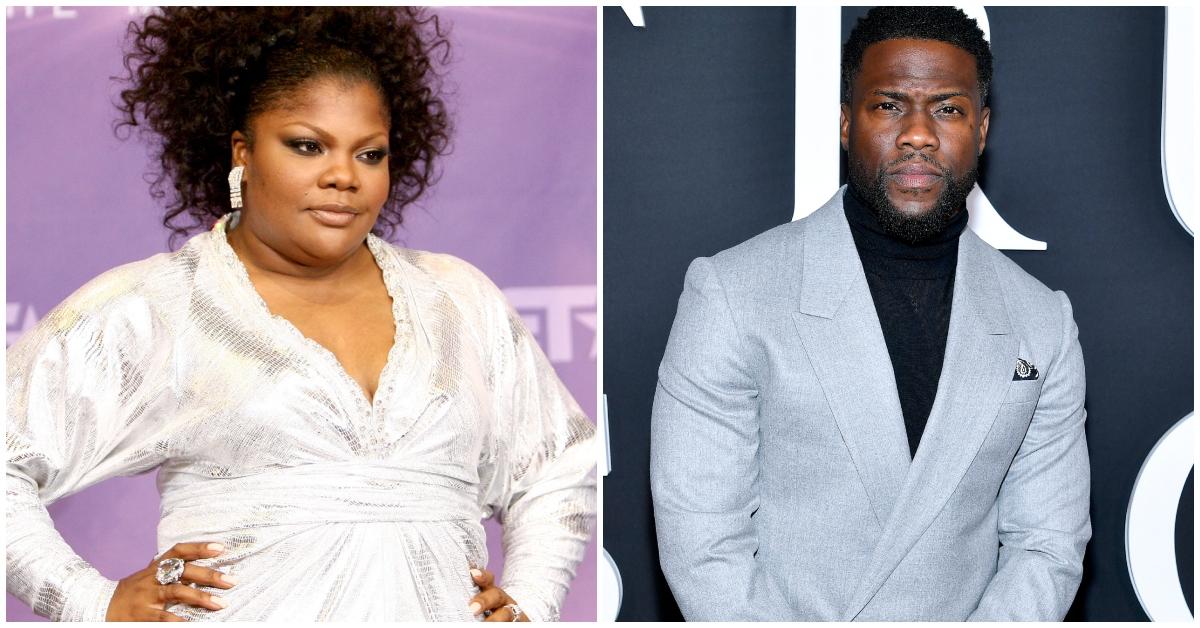Unveiling the Drama: Mo’Nique’s Revelations About Tyler Perry
In the cutthroat world of entertainment, where personal matters are often exposed and controversies abound, Monique has recently stirred the pot with some eye-opening revelations about Tyler Perry, sparking intense speculation and discussion within the industry.
The entertainment industry has long been infamous for its ruthless nature, with rumors swirling about the dark origins of music and the alleged cutthroat nature of the film business. Now, Monique’s candid remarks have shone a spotlight on the film industry once again, this time taking aim at none other than Tyler Perry.
During a comedy routine at the Apollo Theater, Monique didn’t hold back as she aired her grievances against Tyler Perry, along with director Lee Daniels and Oprah Winfrey. She accused them of essentially blackballing her from Hollywood, citing strained relationships stemming from her role in Daniels’ 2010 film “Precious.”

According to Monique, her career took a nosedive after “Precious,” with only four film roles in the years that followed, which she attributes to what she describes as being “white-balled” by Perry, Daniels, and Winfrey. She alleges that their refusal to work with her stemmed from her refusal to play by their rules and demands during the promotion of the film.
In particular, Monique recalls a press tour for “Precious” where she was expected to participate without compensation, despite already being exhausted from filming. When she opted out of the tour to spend time with her family, she found herself labeled as difficult to work with, leading to a downward spiral in her career.
But the drama didn’t stop there. Monique went on to reveal even more shocking details about her strained relationship with Perry, alleging that he had personally admitted to her that she was being blackballed for not “playing the game.” She demanded an apology from Perry and Winfrey, which has yet to materialize.
The controversy surrounding Perry doesn’t end with Monique’s allegations. Over the years, Perry has faced criticism for his business practices, including his handling of unions and his portrayal of stereotypes in his work. Reports emerged of Perry firing writers seeking union contracts for his sitcom “House of Pain,” leading to a contentious dispute with industry unions.
Critics, including filmmaker Spike Lee, have voiced concerns about Perry’s use of stereotypical characters in his films and productions, suggesting that his work perpetuates harmful stereotypes about the black community. Despite Perry’s success at the box office and on television, his methods and portrayal of black characters have come under scrutiny from both within and outside the industry.

In light of Monique’s revelations and the ongoing debate surrounding Perry’s work, questions remain about the future of diversity and representation in Hollywood. As the industry grapples with issues of inclusion and equality, Monique’s bold statements serve as a reminder of the challenges that still exist within the entertainment world and the importance of holding industry leaders accountable for their actions.
Title: Critiquing Tyler Perry’s Influence and Impact on Hollywood
Rock and Spike Lee share a perspective that underscores concerns about certain prominent movies potentially attaining success due to what they perceive as biased casting and storytelling choices made by Tyler Perry. Both Rock and Lee have criticized the impact of such ideologies on the film industry.
Delving further into the entertainment industry, it becomes apparent that colorism is a familiar issue within this domain. Hollywood, in recent times, has come under significant criticism, often propelled by media campaigns featuring hashtags that swiftly disseminate from Twitter to television news.
Harvey Weinstein, a convicted sex offender, was among the initial high-profile figures to draw negative attention to the industry. In 2017, a plethora of sexual abuse allegations surfaced, laying bare the darker facets of Hollywood’s culture.
In the aftermath of the #MeToo movement controversy, Hollywood was rocked by numerous scandals. Among these, comedian Kevin Hart resigned as the Oscars host in 2019 following the reemergence of past homophobic tweets. Simultaneously, the #OscarsSoWhite campaign called for enhanced diversity in the Oscars and greater acknowledgment of individuals from marginalized communities.
Hollywood’s reputation has been notably tarnished, transforming the once illustrious Walk of Fame into what might be dubbed an uninspiring Walk of Shame devoid of stars. Despite some strides towards increased diversity, the film industry continues to grapple with a persistent form of discrimination.
A notable pattern in Tyler Perry’s movies and shows is the portrayal of negative characters who exhibit behavior towards women. This trend has raised significant concerns, prompting many individuals to voice their objections.
Criticism for colorism has been directed towards Tyler Perry’s film “A Fall From Grace.” The movie has faced criticism related to colorism through its exploration of themes like love, betrayal, and the repercussions of one’s actions.
Tyler Perry’s tendency to assume extensive creative control may inadvertently overlook other talented black and brown female writers and directors in the industry. Critics argue that Perry’s approach may limit the diversity of perspectives and voices represented in his projects.
Furthermore, there are concerns that Tyler Perry’s tendency to engage in crossdressing roles may contribute to stereotypes and undermine the perception of black men’s masculinity.
In conclusion, Tyler Perry’s influence and impact on Hollywood are subject to critique and debate. While he has made significant contributions to the industry and the black community, his approach to storytelling and representation has sparked discussions around issues like colorism, gender roles, and creative control. As the industry continues to evolve, it is essential to critically examine the narratives and portrayals that shape our cultural landscape.
News
Cardi B and Offset show that their relationship is still going strong by spending a date night watching the New York Knicks after a brief breakup.-be
Cardi B and husband Offset proved their relationship was stronger than ever as they stepped out for a mid-week date night on Tuesday evening. The hitmaker, 31, looked smitten with…
Nicki Minaj is described as “delusional” in purported texts by Ice Spice, according to Baby Storme.-be
Baby Storme is back for round two. Today (May 3), the musician leaked another alleged conversation with Ice Spice, who she claimed was her best friend at…
Unbelievable: Depp’s Kid REVEALS How Amber Treated Him-be
Johnny Depp’s daughter, Lily-Rose Depp, has recently made waves by speaking out in defense of her father amid the ongoing legal battle between Depp and his ex-wife,…
Despite Travis Kelce warn Jimmy Kimmel Not to call him ‘Broke Boyfriend’ but Jimmy continued and this what this act have results too.-
Earlier this week, the 34-year-old tight end reached a two-year extension with the Kansas City Chiefs that will make Kelce the highest-paid tight end in the…
Watch: Taylor Swift cry in public over criticizing She’s facing on social media,if you’re a Real fan of Taylor one calm word for her, it’s time Fans show her love,deep love.-be
Why have a double date when you can have a couples vacation? That seems to be exactly what Taylor Swift, Travis Kelce, Gigi Hadid, and Bradley Cooper…
Katt Williams SHOWS PROOFS of Oprah Handling Hollywood CELEBS to Diddy-be
The Controversial Intersection of Influence: Oprah, Celebrities, and Allegations In the realm of Hollywood, where power, influence, and celebrity intertwine, the recent allegations and speculations surrounding Oprah…
End of content
No more pages to load











